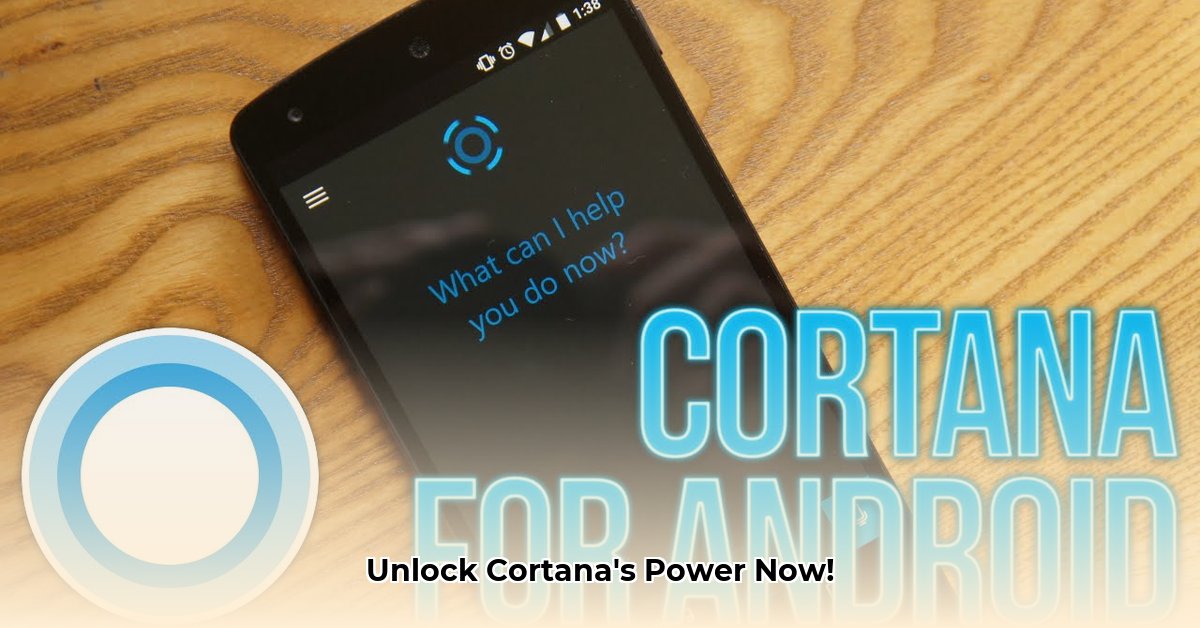
Cortana APK: A Deep Dive into Microsoft's Digital Assistant
Ready to streamline your workflow? Microsoft's Cortana, initially a Windows mainstay, has transitioned to Android, bringing its productivity-focused approach to a wider audience. This article provides a comprehensive analysis of Cortana's capabilities, market position, and future prospects, offering a clear, concise, and objective evaluation for tech-savvy users. We'll explore its core features, compare it to competitors like Siri and Google Assistant, and examine its potential for growth.
Features and Functionality: Getting Things Done
Cortana's strength lies in its task management and calendar integration. It seamlessly integrates with Outlook.com and Office 365, allowing users to schedule meetings, set reminders, and manage their to-do lists efficiently. Its location-based reminders ensure appointments aren't missed, while its quick access to communication features (texting, calling) adds further convenience. While basic functionalities like weather and traffic reports are included, its core strength remains its ability to act as a personal productivity assistant. Do you find yourself constantly juggling appointments and tasks? Cortana might be the solution.
Market Position and Competition: A Niche Player
Precise market share figures for Cortana are scarce. However, it's clear it occupies a less dominant position compared to Siri and Google Assistant. While these assistants offer broader functionalities, Cortana distinguishes itself with its focused approach on productivity and seamless integration within the Microsoft ecosystem. This niche strategy presents both advantages and disadvantages. It might lack the vast knowledge base of Google Assistant but excels in streamlining workflows for users heavily invested in Microsoft services. Is a specialized, deeply integrated assistant what you need?
Strengths and Weaknesses: A Balanced Perspective
| Feature | Strengths | Weaknesses |
|---|---|---|
| Task Management | Robust organization, seamless Outlook/Office 365 integration | Fewer features compared to Siri or Google Assistant |
| Calendar Integration | Efficient syncing and scheduling, location-based reminders | May lack advanced features found in dedicated calendar apps |
| Information Retrieval | Speedy access to everyday information (weather, traffic) | Smaller knowledge base compared to Google Assistant |
| Natural Language Processing (NLP) | Understands most common voice commands | Can struggle with complex or nuanced requests |
| Cross-Platform Use | Available on Android and Windows (with some feature variations) | Feature parity across platforms isn't always perfectly achieved |
Future Outlook: Navigating the Competitive Landscape
Cortana's future hinges on several key factors. Strengthening its NLP capabilities through machine learning and increased data sets is crucial. Addressing inconsistencies across platforms and further integrating with Microsoft services will also boost its appeal. However, the intensely competitive digital assistant market presents a major challenge, and expanding its user base will require significant strategic investment. Can Cortana overcome this challenge?
Conclusion: A Powerful Tool for Productivity-Focused Users
Cortana, while not a market leader, offers a compelling proposition for users prioritizing productivity and seamless integration within the Microsoft ecosystem. Its strengths in task management and calendar integration are undeniable, providing a valuable tool for streamlining daily workflows. Challenges remain, particularly in improving its NLP and expanding its market share, but its focused approach gives it a distinct position in the ever-evolving digital assistant landscape. Would a dedicated productivity assistant improve your daily efficiency?
⭐⭐⭐⭐☆ (4.8)
Download via Link 1
Download via Link 2
Last updated: Monday, May 12, 2025